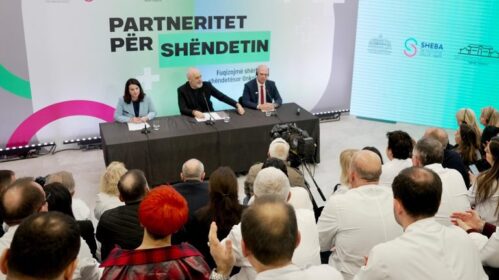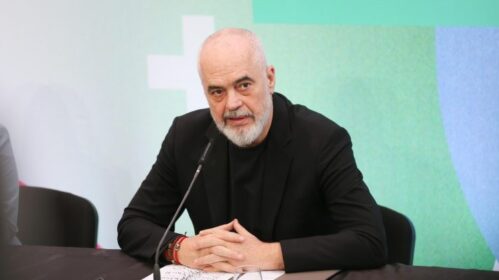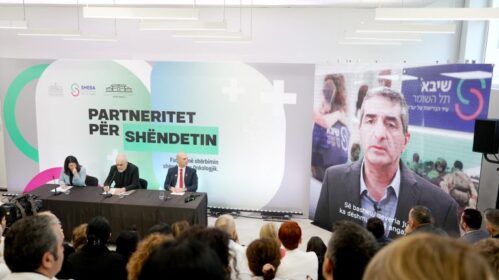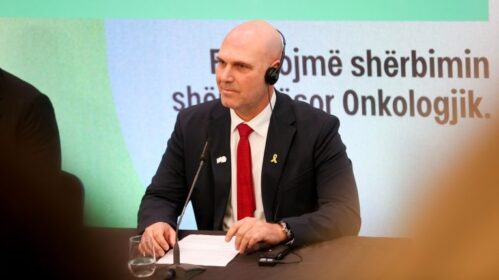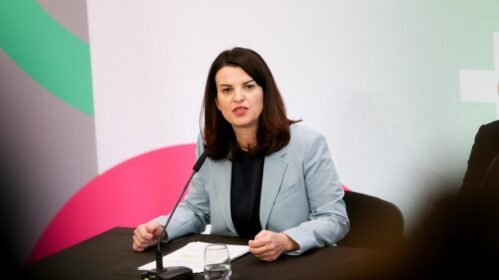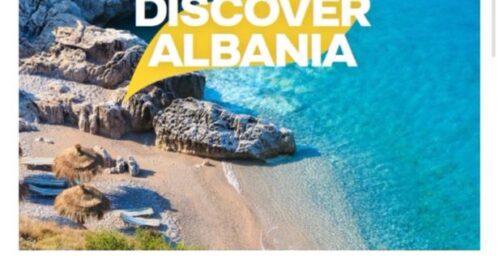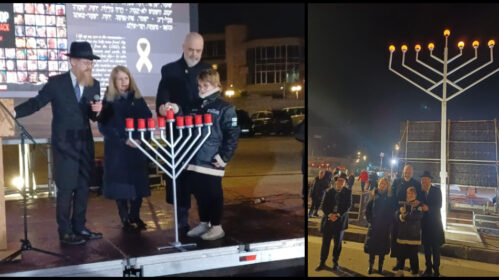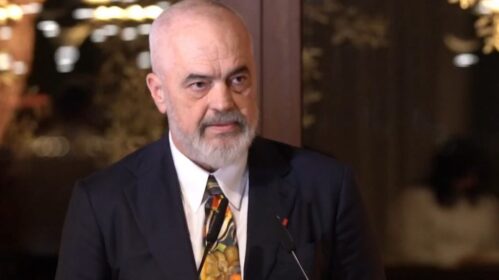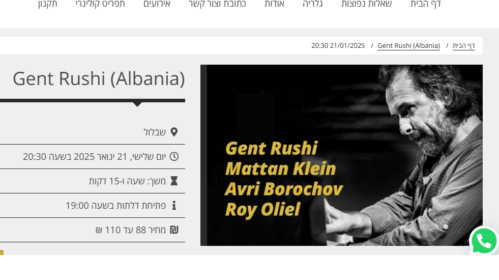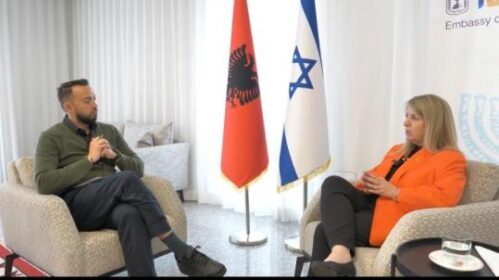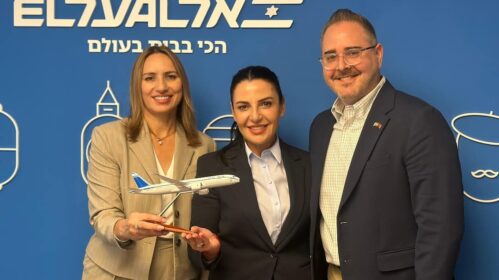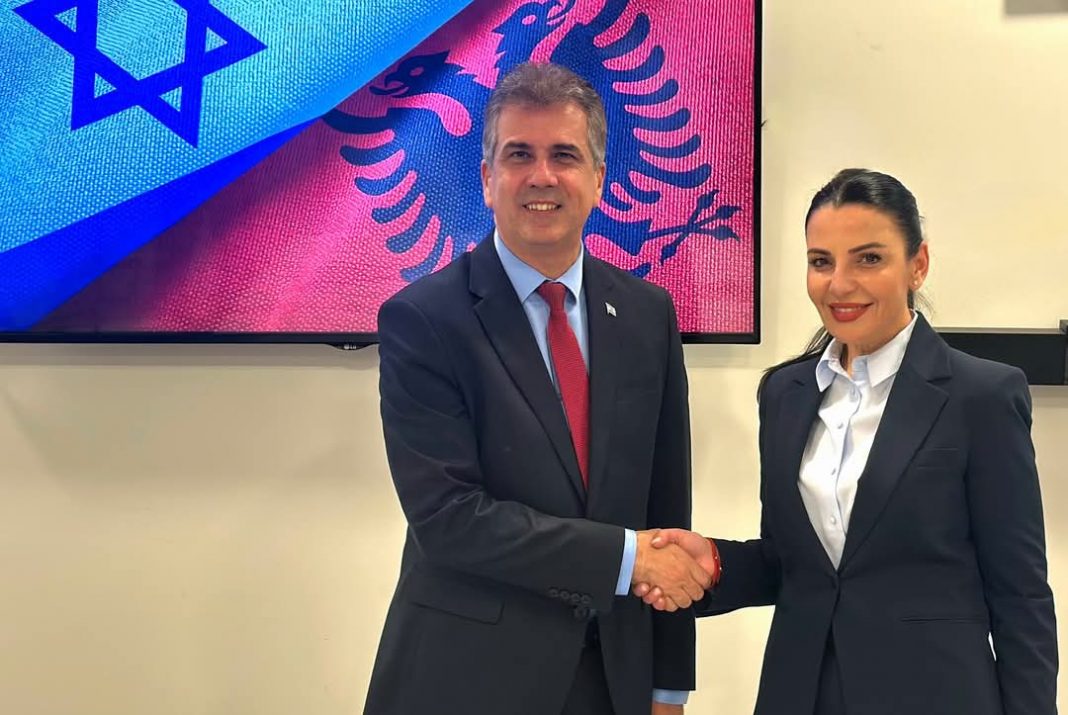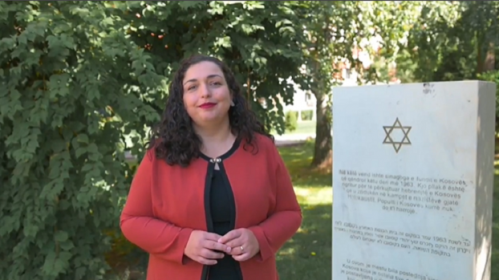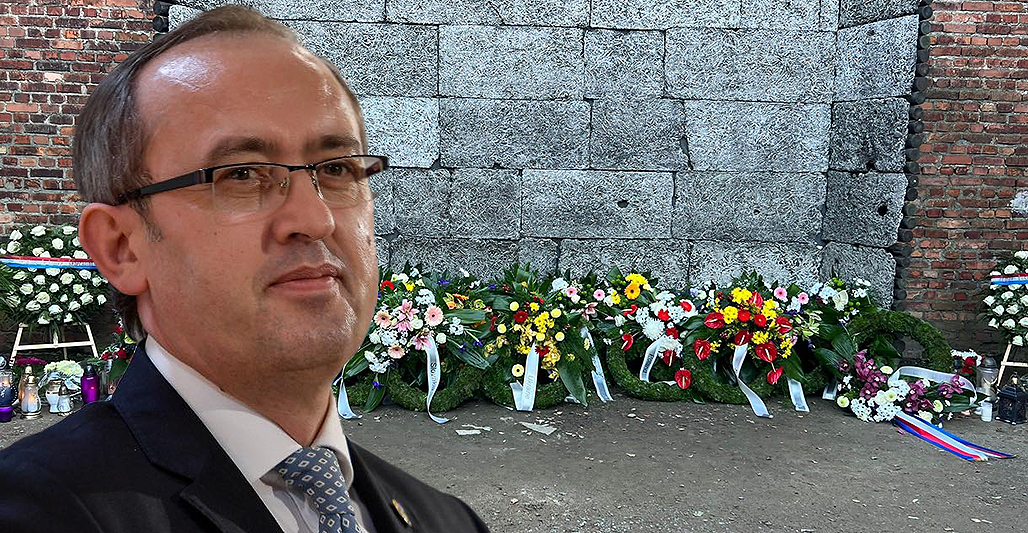by Debra Rubin
NJJN Bureau Chief
May 20, 2013
When European countries closed their doors to desperate refugees, Albania stood out as a notable exception.
The tiny nation’s Muslim rulers and its largely Muslim population welcomed and protected its Jewish “guests,” refusing to turn them in despite threats of retribution from Nazi occupiers.
Their kindness stemmed from the concept of “besa,” an ethical code of honor based on an Albanian interpretation of Islam.
The country, which had only 200 Jews prior to World War II, sheltered between 2,000 and 3,000 Jews, many of whom left for Israel after the war.
“History has recorded what everyone there already knew: No Jew was ever turned over by an Albanian,” said H.E. Ferit Hoxha, Albania’s ambassador to the United Nations, during a May 5 program at the South Brunswick Public Library. “All the Jews there survived the war.”
Hoxha spoke at a program kicking off a photo exhibit at the library about the Albanian rescuers. Since 2003 photographer Norman Gershman, an 82-year-old Bayonne native now living in New York, has been traveling to Albania and Israel photographing Albanians who saved Jews.
Gershman’s photos have been compiled in the book, BESA: Muslims who Saved Jews during World War II. The display, which runs until the end of May, has been exhibited internationally, including at the United Nations and Yad Vashem in Jerusalem.
The library also screened BESA: The Promise, a documentary based on Gershman’s work that features interviews with children and grandchildren of Muslim rescuers and the Jews they saved.
The library exhibit and program was sponsored by the Sisterhood of Salaam/Shalom, a local group of Muslim and Jewish women dedicated to fostering friendship and understanding between the two faiths (see page 8).
“It is so important that the world sees this,” Sisterhood founder Sheryl Olitzky told NJJN. “Instead of thinking of Muslims as terrorists, here we have Albania, which is mostly Muslim, saving Jews. If the rest of the world had acted like Albania, there would have been no Holocaust.”
According to Hoxha, “besa” is woven into Albanian society, even among its Christian minorities. When Albania’s King Zog — then Europe’s only Muslim ruler — instructed his country’s foreign embassies to provide visas to Jews and for guards to allow entry to those arriving at the border, he said the population was fulfilling a moral obligation.
“There are no foreigners in Albania,” the king said, according to Hoxha. “Only guests.”
Gershman, who is Jewish, told the overflow crowd of 200, which included numerous Jews and Muslims, that he felt compelled to tell their story in order to counteract pervasive anti-Muslim sentiment.
“We have to get the word out to the next generation,” he said. “It’s a paranoia we are witnessing, and we have got to fight it.”
Speaking with Gershman after the showing of the documentary was Majlinda Myrto, an Albanian-American Muslim who has spoken at Holocaust memorial events about the role of her father in law, rescuer Shyqyri Myrto. She works with Gershman in his Eye Contact Foundation to broaden distribution of the exhibit and film, which she said has garnered accolades in screenings throughout the world in the last year. The same day it was being viewed in South Brunswick, it was being shown at the Museum of Tolerance in Los Angeles and the Berlin Jewish Film Festival in Germany.
Dr. Paul Winkler, executive director of the NJ Commission on Holocaust Education, said the film highlights all the points stressed in the state’s school programs on the Holocaust, genocide, and bullying. The commission was recommending it, along with accompanying educational material developed for Vancouver schools.
The commission cosponsored a program featuring the film at Mercer County College with the Muslim Student Association and Mercer County Holocaust-Genocide Resource Center and plans to bring the exhibit and film to sites across the state.
They both highlight people “who were upstanders, not bystanders,” said Winkler, “and demonstrate how we should not use stereotyping in a negative way. So many people immediately assume Muslims are saboteurs and terrorists. This project demonstrates all people must be judged their actions and that is the major goal of Holocaust and genocide education. “
http://njjewishnews.com/article/17403/exhibit-highlights-albanians-who-saved-jews#.WrmBmtRubcs





